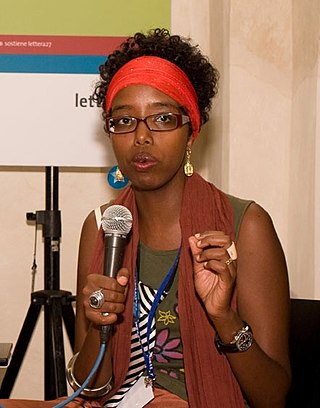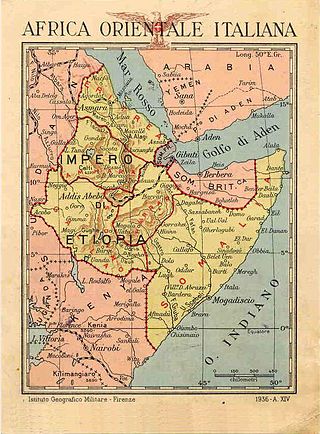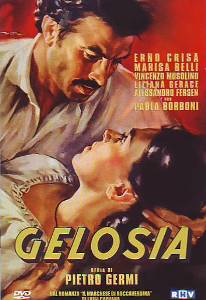
General Gabriele D'Annunzio, Prince of Montenevoso, sometimes written d'Annunzio, was an Italian poet, playwright, orator, journalist, aristocrat, and Royal Italian Army officer during World War I. He occupied a prominent place in Italian literature from 1889 to 1910 and later political life from 1914 to 1924. He was often referred to under the epithets Il Vate, or Il Profeta.

The Strega Prize is the most prestigious Italian literary award. It has been awarded annually since 1947 for the best work of prose fiction written in the Italian language by an author of any nationality and first published between 1 May of the previous year and 30 April.

Somali literature is the literature used by the ethnic Somalis of Somalia, Somaliland, Djibouti, Yemen, Eritrea, Ethiopia, and Kenya.

Mario Soldati was an Italian writer and film director. In 1954 he won the Strega Prize for Lettere da Capri. He directed several works adapted from novels, and worked with leading Italian actresses, such as Sophia Loren and Gina Lollobrigida.

Igiaba Scego is an Italian writer, journalist, and activist of Somali origin.

Luigi Cimara was an Italian film actor. He appeared in 46 films between 1914 and 1960. He was born and died in Rome, Italy.

Albino Pierro was an Italian poet. He was famous for his works in Lucan dialect, and being nominated for the Nobel Prize for Literature.

Enrico "Erri" De Luca is an Italian novelist, translator and poet. He has been recognized by critic Giorgio De Rienzo of Corriere della Sera as "the writer of the decade". He is also known for his opposition to the Lyon-Turin high speed train line, and is being sued for having called for its sabotage. On 19 October 2015, De Luca was cleared of inciting criminal damage. He reacted to the not-guilty verdict declaring that "An injustice has been avoided."

Eritrea Governorate was one of the six governorates of Italian East Africa. Its capital was Asmara. It was formed from the previously separate colony of Italian Eritrea, which was enlarged with parts of the conquered Ethiopian Empire following the Second Italo-Ethiopian War.

Qaw, also known as Bandar Siyada, is a populated place in the northeastern Bari region of Somalia.

Luigi Maria Burruano was an Italian film, stage and television actor. He began his career in Sicilian-language cabaret and theatre before turning his attention to films.

Francesco Luigi Simone is an Italian singer-songwriter, composer and television host, known as "il poeta con la chitarra" for the poetical value of his lyrics.

Jealousy is a 1953 Italian drama film directed by Pietro Germi and starring Erno Crisa, Marisa Belli and Vincenzo Musolino. It is based on the 1901 novel Il Marchese di Roccaverdina by Luigi Capuana. It was shot on location around Belmonte Mezzagno in Sicily. The story had previously been made into a 1942 film of the same title.

Maria Luisa Gabriella Epifani, better known as Muzi Epifani, was an Italian writer and poet.
Domenicangela Lina Unali has been professor of English literature at the Faculty of Letters, University of Rome Tor Vergata since 1983. Previously, from 1969 to 1982, she taught at the University of Cagliari. She was Secretary and Treasurer of AISNA in the years 1971-1973.
Gabriella Ghermandi is an Italo-Ethiopian writer and performer. Ghermandi's writing focuses on the intersection of African and Italian identity.
Seynab Haji Ali Siigaale was a Somali singer, songwriter and stage actress. Along with Magool and Guduudo Carwo, Baxsan was one of the most popular performers of the 20th century.
Orsola Nemi was an Italian writer and translator.
Tiziano Rossi is an Italian poet. He is well known for his published books of poetry, but in 2020 he also published a collection of short tales.
Athos Bartolucci was an Italian Fascist politician and journalist, who served as federal secretary of the National Fascist Party in Dalmatia from 1934 to 1942 and as Civilian Commissioner for occupied Dalmatia during World War II.














